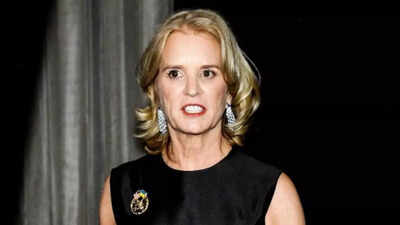Upcoming Local Elections: A Crucial Test for Keir Starmer and Labour

A by-election in a traditionally safe Labour seat presents a significant challenge for Keir Starmer, marking his first major electoral test since assuming the role of Prime Minister. This situation mirrors a previous scenario where Starmer faced intense scrutiny during his tenure as opposition leader following Labour's unexpected defeat in Hartlepool to Boris Johnsons Conservatives in 2021. The aftermath of that loss initiated a period of significant upheaval within the Labour Party, leading to major personnel changes and a reevaluation of campaign strategies. Similarly, the potential loss of Runcorn and Helsby to Nigel Farages Reform UK could prove to be equally damaging for the party.
Labour is expected to enter this contest as the favorite, having previously won this socially diverse marginal seat in Cheshire by a substantial margin less than a year ago. However, the current political climate is far more unpredictable. Recent opinion polls indicate a decline in Labours support while showing a rise in support for Reform and an increasingly dissatisfied electorate. This uncertainty raises significant questions about the outcome of the election.
The stakes are high for the upcoming election results in Runcorn, as they will set the tone for the local and mayoral elections scheduled throughout the year. A strong performance by Labour would ease pressure on a beleaguered government, while a successful showing by Reform could intensify the challenges facing Labour, particularly in areas historically considered part of the party's stronghold, often referred to as the "red wall." While Farages party could potentially siphon off Labour votes in Runcorn, the Conservatives may experience the most substantial repercussions during these local elections.
Many of the upcoming contests are located in predominantly blue-leaning regions of the Midlands and the South. The Conservatives enjoyed sweeping victories in these areas during the last local elections held in 2021, buoyed by a favorable public response to their handling of the COVID-19 pandemic and the vaccine bounce. However, as nearly 1,000 Conservative councillors prepare for re-election in May, the current polling indicates that the party is struggling significantly, with projections suggesting that hundreds of seats could be lost as a result.
As the political landscape evolves, the narrative of the upcoming elections will predominantly revolve around the emergence of new political parties. The rise of Reform has captivated media attention, with the party set to appear on ballots across nearly every local election. This surge could see Reform surpass the previous successes of its predecessor, UKIP, particularly in areas with high support for Brexit, including Derbyshire, Lincolnshire, and Kent, where Reform candidates previously performed well.
In addition to Reform, voters disillusioned with traditional political parties also have alternatives in the Liberal Democrats and the Green Party, both of whom have been gaining traction in recent local elections. The Liberal Democrats, having regained strength after a difficult coalition period, are looking to solidify their influence in the home counties with strong showings in areas like Oxfordshire and Gloucestershire. Similarly, the Greens are actively fielding more candidates and have made significant gains in local government, which they hope will provide the necessary credibility to translate local support into parliamentary representation.
This year's local elections will be notable for their unprecedented level of fragmentation, with Labour, the Conservatives, the Liberal Democrats, Reform, and the Greens all vying for votes. The introduction of multiple candidates and parties may lead to a chaotic electoral landscape where traditional voting patterns are disrupted. The first-past-the-post electoral system, which traditionally favors the leading party, may not accommodate this evolving political dynamic effectively. This could result in scenarios where a majority of voters prefer alternatives to the winning candidate, yet those candidates receive no representation.
The ramifications of this fragmentation could lead to significant instability in local governance, with many councillors and mayors being elected despite the majority of voters casting their ballots for other candidates. The outcome of this election cycle could signify a critical shift in British politics, indicating a waning preference for the two-party system that has dominated for decades. Voter support for traditional parties reached an all-time low last July, a trend that appears to be continuing. Next months elections may serve as a pivotal moment, revealing the potential consequences of this evolving political landscape and the pressures that may finally break the barriers that have long kept voters confined to the choices of Labour and the Conservatives.


























